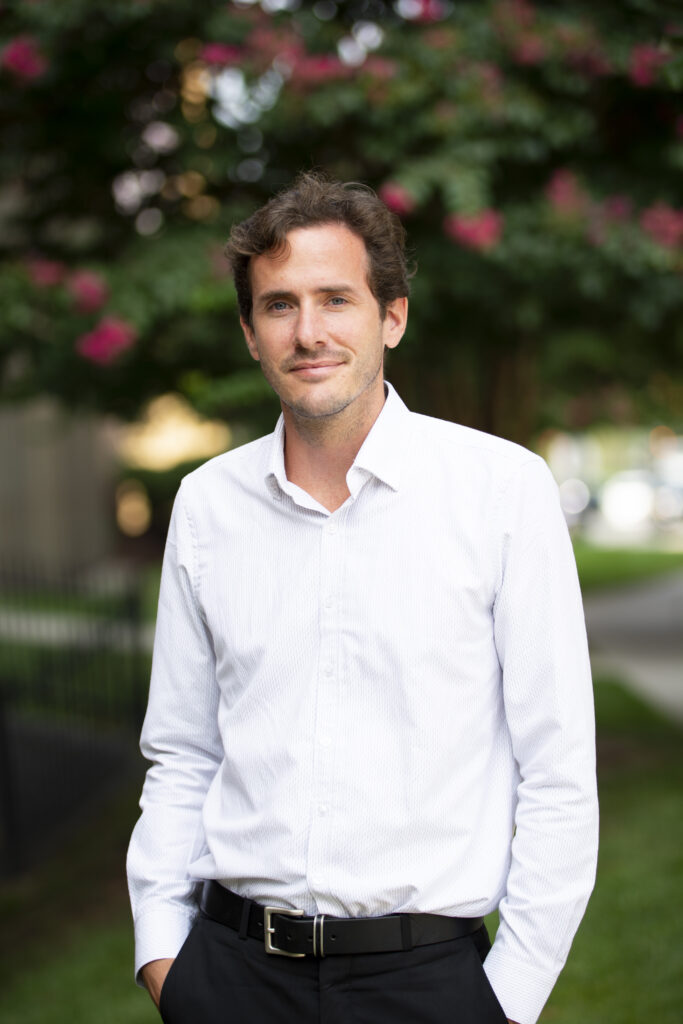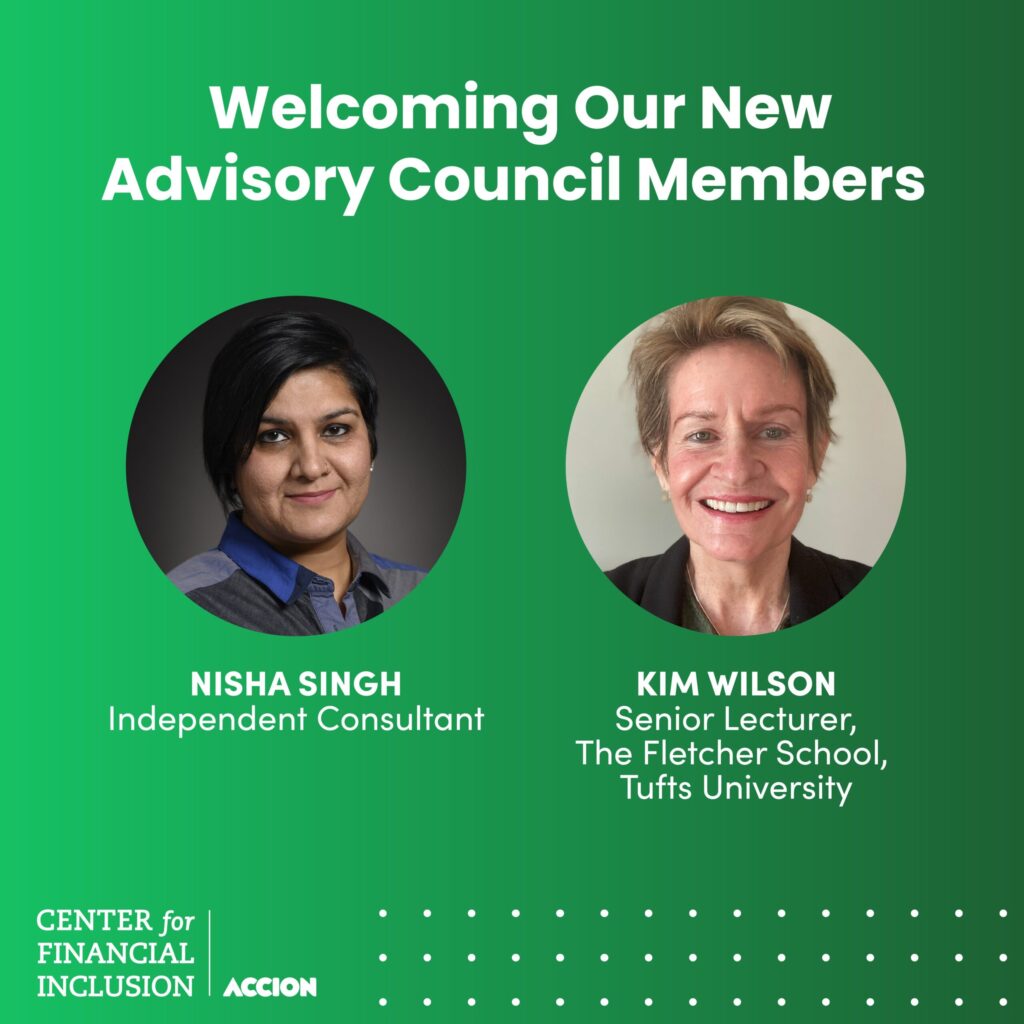
Topics
- Digital Payments
- Enabling Environment
- Financial Capability
- Financial Health
- Policy, Regulation and Government Initiatives
- Refugees and Migrants
- Remittances
- Savings
- Small Business Owners
- Underserved Groups
Series
Following nearly a year of limited direct access to the lives of the vulnerable people who are the subject of his research, Prof. Jonathan Morduch — economist, co-founder of the Financial Access Initiative (FAI), scholar of the lives of the poor and CFI Advisory Council member – has been working beside a white-hot forge of projects, continuing to help shape the global body of knowledge about the lives that inclusive finance seeks to improve.
“It’s been a very busy time, even though we haven’t been able to do what we really want to do, which is being in the field: doing surveys, doing research, getting to know people and better understand problems.”
For Prof. Morduch and his team, co-led by Timothy Ogden, that’s meant building partnerships and assembling teams for four different projects focusing on people from a range of backgrounds: from ultra-poor workers migrating to Dhaka from northwest Bangladesh, to families in Compton, California, struggling in a pandemic-scarred economy.
Small Firm Diaries: Applying the “Portfolios” Model
Perhaps the most visible of these so far is the Small Firm Diaries project. Morduch, co-author of “Portfolios of the Poor” and U.S. Financial Diaries, is part of a team that will apply the financial diaries model — collecting data from hundreds of poor households frequently and regularly over a long period of time (at least a year) — to firms with 1 to 20 employees, in contrast to CFI’s research on MSMEs, which has been focused on collecting and analyzing survey data on COVID-19’s impact on the financial health of owners of a broader range of business sizes.
“There’s a lot of great research available on small firms from different angles – liquidity, gender, how they use digital services… The diaries instead present a chance to look at firms holistically, without imposing a particular agenda from the start. The diaries are a way to understand the lives of firms and whom they employ, whom they serve – and whom they are served by – and try to understand them on their own terms.”
The diaries present a chance to look at firms holistically, without imposing a particular agenda from the start.
With financial support from the Mastercard Center for Inclusive Growth, the Bill & Melinda Gates Foundation, and the Argidius Foundation, the team will collect data for one year from firms in Colombia, Fiji, Indonesia, Kenya, Ethiopia, Uganda and Nigeria. In addition to following cash flows, the researchers will also complete qualitative interviews in roughly 100 households per country from a variety of sectors.
From South Asian Cities: Researching Digital Remittances Back Home
A second project Prof. Morduch is leading is digitally connected and builds on a pilot in Bangladesh that connected ultra-poor families – whose working-aged children were employed mostly in garment factories in Dhaka and who were largely excluded from technology — with digital networks to send money home easily. This pilot intervention revealed a 25 percent boost in money going to home villages; the team also found that consumption was smoothed during the lean season and increased overall. The project was spearheaded to fill a knowledge gap in the impact of domestic remittances. Beyond the numbers, it has also changed the way Prof. Morduch has viewed microfinance interventions, which have traditionally been about bringing resources like microcredit to grow businesses in villages.
“This project shows other ways to improve rural conditions. One is to make it easier for younger people to move to cities where they can be more productive and earn higher wages. What about the people who are left behind in rural areas? They can benefit if migrants have reliable ways to send money home.” In addition to introducing the technology to urban migrants and their rural families, the team translated the digital interfaces (which were mostly in English) and gave users hands-on experience. The initial result? Active use of the product went from 20 percent to 70 percent.
The team hypothesized that urban-to-rural remittances would become more frequent as a result of the digital ease of transacting. Surprisingly, the frequency remained largely the same, but the amounts grew.
While the financial and usage results were positive, the treatment group of migrants reported worsened physical and emotional health. The team suspects that migrants started working longer hours as expectations to remit were increased by the digital technology.
The team suspects that migrants started working longer hours as expectations to remit were increased by the digital technology.
“It’s a reminder that digital financial services can disrupt social relationships. All of a sudden, migrants are available to their families all the time, both to talk and to send money. This changes how we go through life. These technologies can be powerful, but they disturb a social balance.”
With support from the Bill & Melinda Gates Foundation, the team will replicate the work in six other sites in India, Pakistan and Bangladesh.
To the Homes of Compton: A Guaranteed-Income RCT
Prof. Morduch is also part of a group that’s working on a guaranteed-income randomized control trial in Compton, California, involving several hundred families whose incomes are below twice the U.S. poverty line. The purpose of this RCT is to test a premise about being poor and facing instability: while financial services’ role in smoothing consumption via saving and borrowing is critical, the poor also need a “usefully large sum” from time to time.
As Morduch says, families need to both “smooth” and “spike” during the year.
“These are different savings problems. We tend to focus on smoothing, but both smoothing and spiking are really hard for poorer households, and they call for different solutions.” So for the duration of the experiment, some families will get a check every couple of weeks (smoothing), and another group will get a larger disbursement of funds less frequently, which Prof. Morduch and his collaborators hope will allow them to support important purchases.
Morduch points out that even though the U.S. has the Earned Income Tax Credit (a de facto lump sum payment in the form of a tax refund) and programs — like SNAP — to support food purchases for low-income families (a smoothing mechanism), “we never really step back and think about them as financial mechanisms, and that’s what the Compton project is all about.”
Indeed, thinking about stability’s role has been a common theme throughout his planning and executing of projects. “One of the great inequalities in life is that people who have better paying jobs also have more stable jobs. People who earn the least have the least protection and stability.”
“People who have better paying jobs also have more stable jobs. People who earn the least have the least protection and stability.”
With that instability and seasonality of employment for the poor, there needs to be more frequent measurements to understand poverty, be them quarterly, or monthly, as opposed to yearly. And the kind of instabilities we saw in “Portfolios of the Poor” are also faced by American workers as the power of labor (i.e., declining unions, monosponies) falls away, Morduch points out. The Compton project could help inform ways to better collect data frequently.
A New Primer on Financial Inclusion
As if that weren’t enough to keep them busy, a new book is also in the works. “Financial Inclusion: What Everyone Needs to Know,” by Prof. Morduch and Ogden, will be an explainer organized in Q & A form, a chance for the pair to “pull together ideas and evidence that we talk about all the time, but that may be new to readers.” Prof. Morduch pointed out that while organizations like CFI implicitly explain topics by offering solutions, a book that explains the problems for a broader audience will help advance financial inclusion objectives even more. The book is slated for fall 2021 release.
CFI’s Strategic Shift
In some ways, Prof. Morduch’s strategizing and planning is similar to that undertaken by CFI, for whom he has advised for many years. And the excitement is shared.
“CFI’s strategic priorities show an organization that’s truly looking forward, while also looking back. CFI is not losing sight of unfinished agendas in women’s financial inclusion and consumer protection while looking forward to challenges like climate risk, where there doesn’t yet exist a well-formulated agenda.”
“CFI is not losing sight of unfinished agendas in women’s financial inclusion and consumer protection while looking forward to challenges like climate risk, where there doesn’t yet exist a well-formulated agenda.”
For the latter topic, Morduch urges CFI to make it clear why climate risk is important for people concerned with financial inclusion. “If everyone worried about finance also understands why they should get excited about climate risk, then they will follow CFI, and they will push CFI to push harder, and I am excited about that possibility.”
Wanted: Closer Public Sector Involvement
Whether it’s CFI, FAI or other organizations advocating for inclusive finance, Morduch believes that public sector interventions need more prominence.
“The microfinance ethos, in some sense, got us off on the wrong foot. It seemed very anti-government in the beginning — a private sector intervention. Politically, that was aligned with the moment, but it cut off important conversations. Instead of minimizing connections to public action, financial inclusion should be coming alongside steps by governments to support citizens. That’s one of the great omissions of the financial inclusion conversation: it has been too optimistic about the power of finance alone to address inequality.”
We at CFI agree that the conversation must go beyond private sector interventions: “How are public policy, social safety nets, systemic discrimination or other underlying issues influencing people’s financial health circumstances?” Mayada El-Zoghbi, CFI Managing Director, asked readers of this blog last June.
And we’re looking forward to learning and comparing what we’ve discovered.










